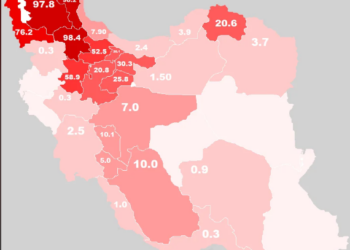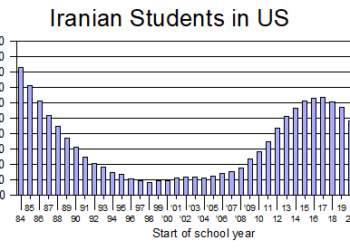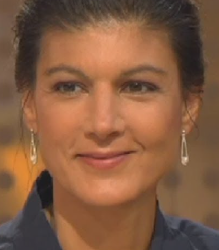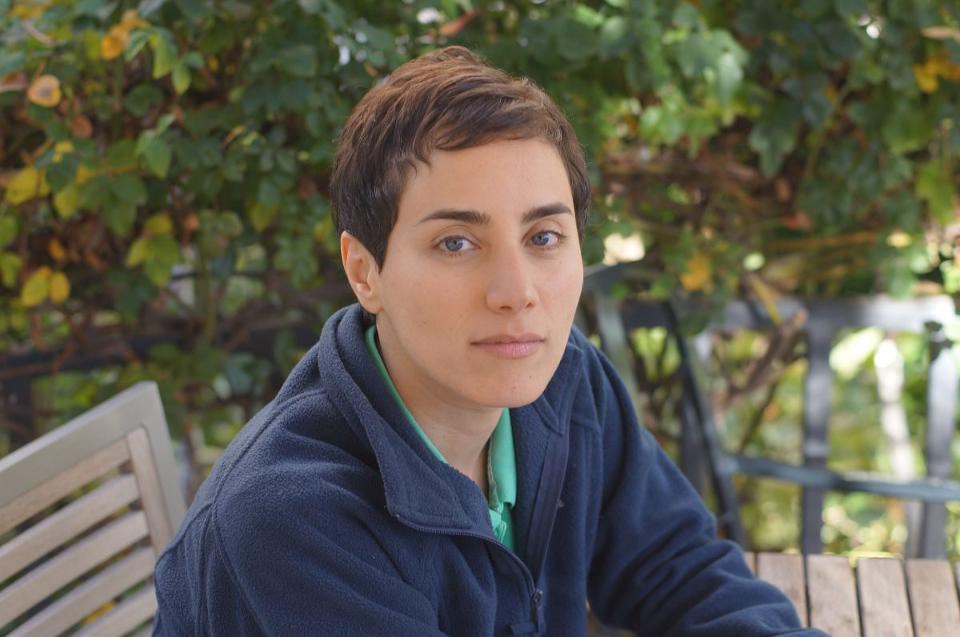May 17, 2019
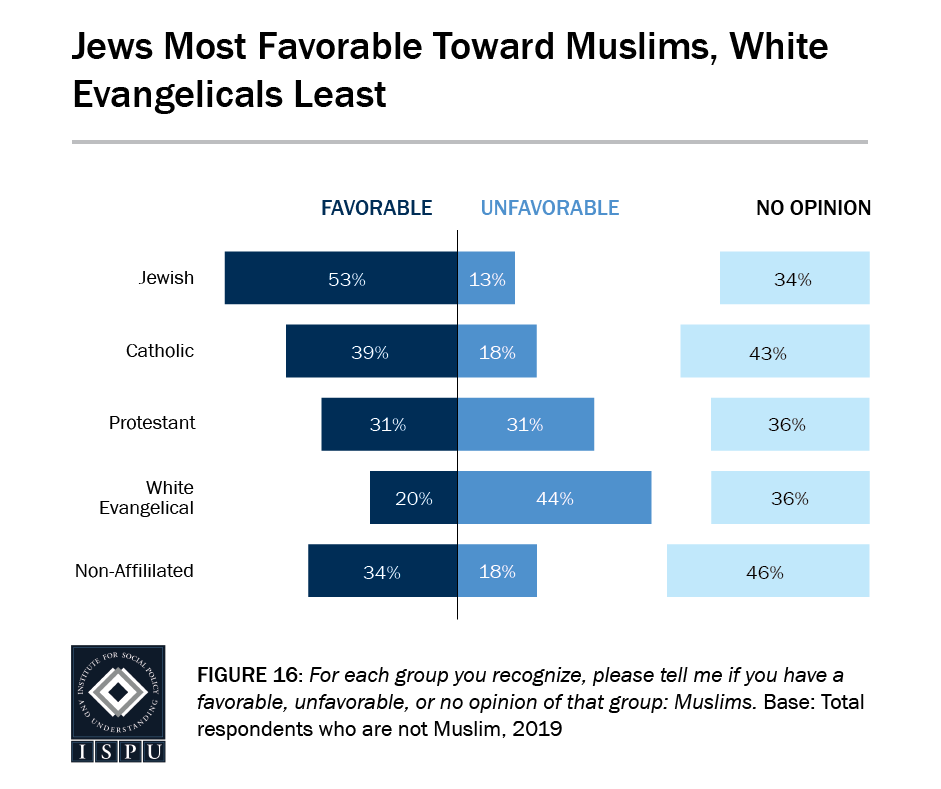 The American faith group most likely to view Muslims favorably is Jews, perhaps because they see Muslims facing the kind of ignorant religious bigotry that Jews once faced in the United States.
The American faith group most likely to view Muslims favorably is Jews, perhaps because they see Muslims facing the kind of ignorant religious bigotry that Jews once faced in the United States.
That shows up in a poll taken by the Institute for Social Policy and Understanding (IPSU), and was the fourth poll the group has taken on American attitudes toward Muslims. The poll queried more than 2,000 Americans earlier this year.
The poll found that Jews are the Americans most likely to hold positive views of Muslims, with Jews four times as likely to hold favorable views (53 percent) as unfavorable views (13 percent) of Muslims. This is in sharp contrast to white Evangelicals, whose faith community is more than twice as likely to hold negative views (44 percent) as positive views (20 percent) of Muslims.
As the accompanying chart shows, American Catholics and Americans with no religious affiliation hold favorable views of Muslims by about a 2-to-1 margin while Protestants are evenly split between those viewing Muslims favorably and those viewing them unfavorably.
The poll also found, that Muslims are the group least likely to approve of President Trump, but, perhaps surprisingly, the one most likely to express optimism with the direction the country is taking.
The poll found that only 16 percent of American Muslims approve of the job Donald Trump is doing as President, the lowest of all the groups surveyed. While other groups tallied between 24 percent and 50 percent approval, the overwhelming majority of white Evangelicals (73 percent) reported approval of the President. Among Muslims, white Muslims (29 percent) and those who are 30-to-49 years old (19 percent) are more likely to approve of Donald Trump than all others.
Despite the low opinion of the performance of the President, 33 percent of Muslims conveyed optimism about the future trajectory of the nation, more than any other faith group or unaffiliated Americans.
While white Muslims at 43 percent are more likely than Black Muslims at 20 percent to be upbeat, Muslim women at 70 percent are more likely than Muslim men at 58 percent to be pessimistic about the future.
The poll takers said, “We find Muslims’ overall positivity remarkable given the fact that all other groups surveyed registered a sharp decline in their satisfaction with the way things are going in the country. We posit that Muslim [candidate victories] and Democratic gains in the 2018 midterm elections and the continued resistance to Trump’s anti-immigration policies are responsible for Muslims’ confidence.”
The findings show that Muslims directed their frustration with the administration at the ballot box and voted overwhelmingly in favor of Democratic candidates. Three-quarters of Muslims (76 percent) cast their ballots for Democrats, a trend mirrored among Jewish Americans (69 percent), as well as Black (91 percent) and Hispanic Americans (66 percent).
The poll shows that the Trump visa ban for Muslims doesn’t earn much support for candidates, with only white Evangelical voters liking it.
The poll asked: “Does a candidate’s support for President Trump’s travel ban on citizens from five predominantly Muslim countries, a policy sometimes referred to as the ‘Muslim ban,’ increase your support, decrease your support or not make a difference to your support for this candidate?”
Nationally, Americans took a dim view of the ban. More than a third of respondents, 34 percent, said support for the ban would make a positive difference to the voter, but 44 percent said such support would decrease the voter’s interest in a candidate.
The poll found, rather surprisingly, that 8 percent of Muslims said a candidate’s support for the Muslim ban would increase that Muslim’s support for such a candidate. Support rose to 12 percent among the non-affiliated, 15 percent among Jews, 18 percent among Catholics, 34 percent among Protestants and 44 percent among white Evan-gelicals.
















